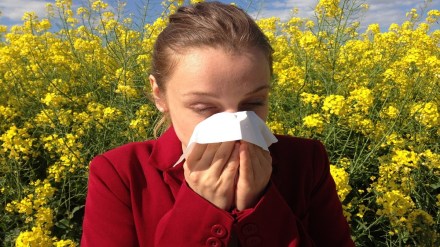As the temperature drops and winter sets in, many individuals experience symptoms such as sneezing, nasal congestion, itchy eyes, and a runny nose, often mistaking them for a cold. However, these could be signs of seasonal allergic rhinitis, commonly referred to as winter allergies.
“Unlike spring allergies triggered by pollen, winter allergies are predominantly caused by indoor allergens such as dust mites, mold, pet dander, and cockroach droppings. The prolonged time spent indoors during colder months increases exposure to these triggers,” Dr Neha Rastogi Panda, Consultant-Infectious Diseases, Fortis Memorial Research Institute, Gurugram told Financial Express.com.
According to Dr. Panda, winter allergies often mimic cold symptoms, making them difficult to distinguish. However, while colds typically resolve within 7–10 days and are accompanied by fever or body aches, allergies persist as long as exposure continues and do not cause fever.
“Key symptoms include sneezing, nasal congestion, watery or itchy eyes, and postnasal drip. Those with asthma may also notice exacerbated symptoms during this time due to allergic triggers,” she said.
Managing Seasonal Allergic Rhinitis
Minimising Allergen Exposure:
- Dust Control: Regular cleaning, vacuuming with HEPA filters, and washing bedding in hot water can reduce dust mites. Use dust-proof covers for mattresses and pillows.
- Humidity Regulation: Keep indoor humidity below 50% to prevent mold growth. Use dehumidifiers and fix water leaks promptly.
- Pet Allergens: Limit pets’ access to bedrooms and frequently wash their bedding.
Medication and Therapies:
- Antihistamines: Over-the-counter antihistamines can alleviate sneezing and itching.
- Nasal Corticosteroids: These reduce inflammation and congestion effectively when used consistently.
- Decongestants: Short-term use can relieve nasal blockage but should not exceed a few days to avoid rebound congestion.
- Allergy Immunotherapy: For severe allergies, allergen-specific immunotherapy (allergy shots) can provide long-term relief.
Lifestyle Adjustments:
- Stay indoors during high allergen times, particularly when cleaning.
- Use air purifiers to minimize airborne allergens.
“By recognizing the symptoms and adopting proactive measures, individuals can manage winter allergies effectively, ensuring a comfortable and healthier season. Remember to consult your doctor for personalized advice if symptoms persist or worsen,” Dr. Panda said.
